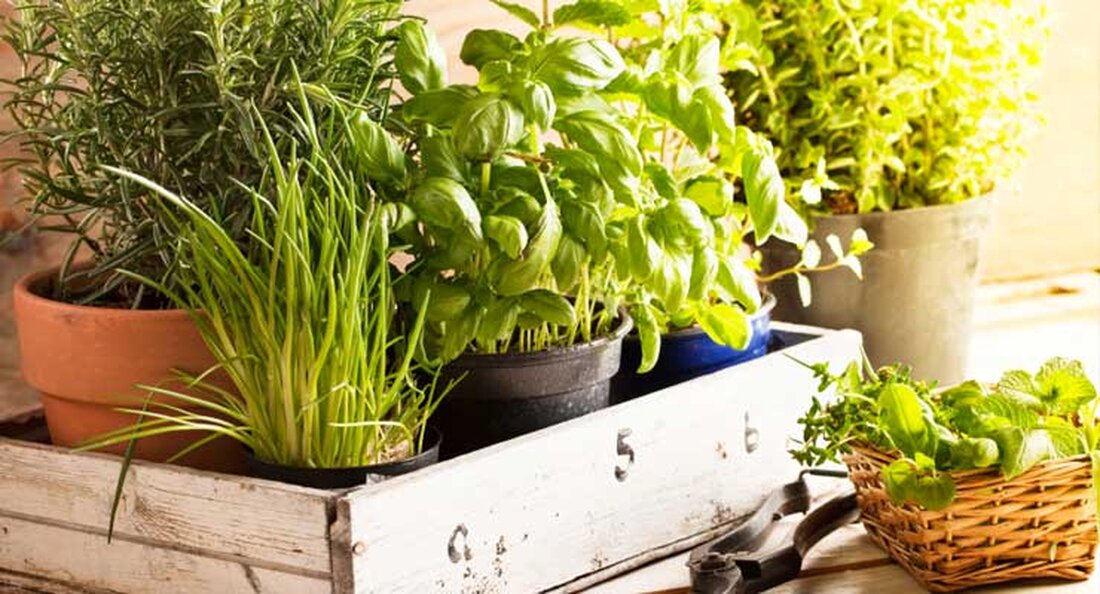Slowing down aging – the medicinal herb garden could be the answer
In the not-too-distant past, clinical data on herbs was sparse, and what was available was published primarily in Germany. Today, however, researchers around the world are busy releasing new information about the healing powers of herbs, and there is now evidence that they represent a viable treatment for a variety of ailments, including aging. As we get older and more vulnerable to the ravages of time, concerns about aging become more important. However, two super-powerful herbs that can help slow the aging process, garlic and ginkgo, have been shown to be effective in...

Slowing down aging – the medicinal herb garden could be the answer
In the not-too-distant past, clinical data on herbs was sparse, and what was available was published primarily in Germany. Today, however, researchers around the world are busy releasing new information about the healing powers of herbs, and there is now evidence that they represent a viable treatment for a variety of ailments, including aging.
As we get older and more vulnerable to the ravages of time, concerns about aging become more important. However, two super-powerful herbs that can help slow the aging process, garlic and ginkgo, have been shown to be effective in treating cholesterol, cancer, Alzheimer's disease, mental acuity, erectile dysfunction, and problems caused by antidepressants. And more good news: Both can be grown in a backyard medicinal herb garden.
A word of caution, before embarking on any herbal healing process, consult your doctor first. This is especially important if you are pregnant or breastfeeding, have a chronic medical condition, or regularly take prescription medications.
Garlic for Cholesterol – At New York Medical College in Valhalla, researchers found that half to one clove of garlic per day lowered cholesterol by nine percent. If you'd rather not eat fresh garlic every day, garlic supplements have a similar effect.
Garlic for Cancer Prevention – In a long-term Iowa Women's Health Study, researchers followed 41,837 middle-aged women and found that those who ate the most garlic had the lowest risk of colon cancer. A few cloves a week reduced the risk by 32 percent, and a larger intake further reduced the risk. Further studies have also shown that garlic helps reduce the risk of bladder and prostate cancer.
Ginkgo for Alzheimer's Disease - The prestigious Journal of the American Medical Association published a study of 202 Alzheimer's patients who were given either a placebo or a ginkgo extract (120 mg per day). After twelve months, the ginkgo group was found to have retained more mental function, and subsequent studies have confirmed the finding. Ginkgo improves blood circulation in the body and brain.
Ginkgo for Mental Acuity – Four recently published studies in Physiotherapy Research show that ginkgo improves mental function in cognitively normal people. Healthy adults ages 30 to 59 received ginkgo (120 to 300 mg per day) or a placebo. The herb has been found to be directly related to improved memory performance. The recommended consumption is a standardized extract of 120 to 240 mg per day.
Ginkgo for Sex Problems – In a Journal of Urology study, 60 men with erection problems caused by narrowed arteries and impaired blood flow to the penis were given ginkgo (60 mg daily). After six months, more than half of the men examined gained erectile function. In addition, a large number of people today take antidepressants, but at a high price - a significant risk of loss of libido, erectile dysfunction, vaginal dryness and inability to reach the organism. Researchers at the University of California gave ginkgo (209 mg per day) to 63 people suffering from antidepressant-induced sexual problems and found that the herb helped 91 percent of women and 76 percent of men return to normal sexual function.
Garlic and ginkgo are powerful herbs in treating aging problems and can be grown in almost any backyard medicinal herb garden. Add these herbs to your arsenal of home remedies and start seeing positive results for each of the aging issues discussed in this article.

 Suche
Suche
 Mein Konto
Mein Konto
